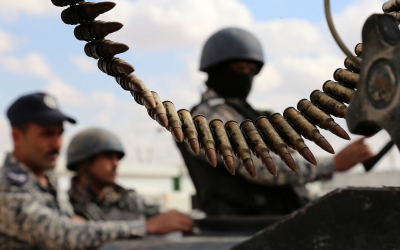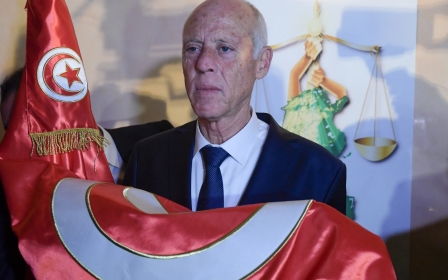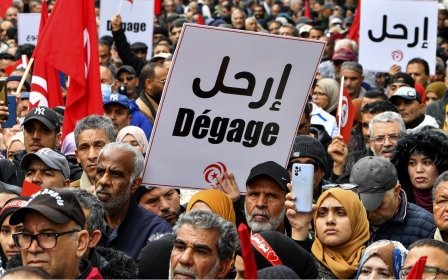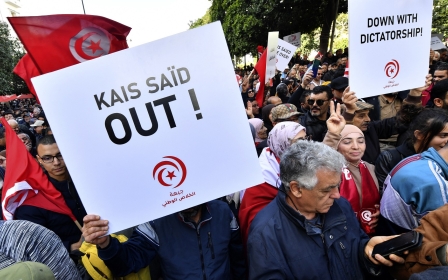Tunisia’s President Saied to appoint new ambassador to Syria
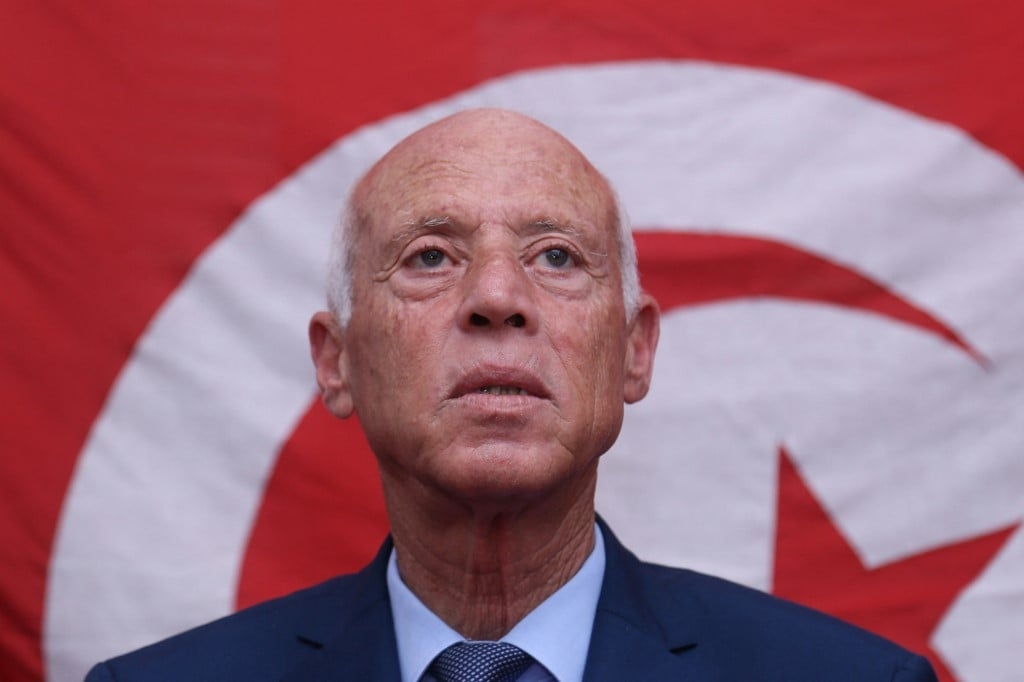
Tunisian President Kais Saied has instructed the foreign ministry to "initiate procedures for appointing an ambassador of Tunisia in Damascus", according to an official statement, in the latest move towards Arab states' normalisation with the government of Bashar al-Assad.
The statement, published on the presidency's Facebook page, stressed the "necessity of adhering to the principles of the foreign policy of the Tunisian diplomacy" and said that the country’s "positions abroad stem from the will of its people".
Tunisia was among several Arab countries that severed their ties with Assad a decade ago, in the aftermath of his brutal crackdown on anti-government protests during the pro-democracy uprisings of 2011. But Tunis returned a limited diplomatic mission to Syria in 2017.
Saied had previously announced that his government would strengthen ties with Syria, and in February he decided to raise the level of Tunisian diplomatic representation in Damascus, declaring that "the issue of the Syrian regime is an internal matter that concerns Syrians alone."
The Tunisian announcement comes as Saudi Arabia reportedly plans to invite Assad to an Arab League summit in Riyadh on 19 May, a move that could cement Assad’s return to the Arab fold after a decade of isolation.
New MEE newsletter: Jerusalem Dispatch
Sign up to get the latest insights and analysis on Israel-Palestine, alongside Turkey Unpacked and other MEE newsletters
The Syrian leader’s visit would coincide with Saudi Arabia and Syria's plans to reopen their embassies after the Muslim holy month of Ramadan at the end of April, according to Reuters.
The uptick in talks between Saudi Arabia and Syria follows Riyadh’s move in March to re-establish ties with Iran, one of Damascus’ main backers.
A Syrian official, speaking on condition of anonymity, previously told Middle East Eye that the Saudi-Iran deal was "another obstacle out of the way of more re-engagement" with Riyadh.
Diplomatic efforts have also picked up in the wake of the two massive earthquakes in Turkey and Syria in February. Saudi Arabia sent aid to government-controlled Aleppo in the first such flight in 11 years.
Reviving ties with Saudi Arabia would be a major breakthrough for Assad, who has been on a diplomatic blitz in the region. He visited Oman in February for the first time since the revolution against him erupted. The following month, he travelled to the UAE, accompanied by his wife Asma.
Meanwhile, Egypt is working with Saudi Arabia to facilitate Damascus’ return to the Arab League, according to Reuters.
On Saturday, Syria's foreign minister met his Egyptian counterpart in Cairo for the first such visit in more than a decade.
Assad, however, is still viewed as a pariah in much of the West for overseeing a violent crackdown on opponents in the wake of the 2011 protests.
The US remains opposed to normalisation. Regional powers like Qatar have also ruled out normalising ties with Assad without changes in his government's behaviour.
Middle East Eye delivers independent and unrivalled coverage and analysis of the Middle East, North Africa and beyond. To learn more about republishing this content and the associated fees, please fill out this form. More about MEE can be found here.


